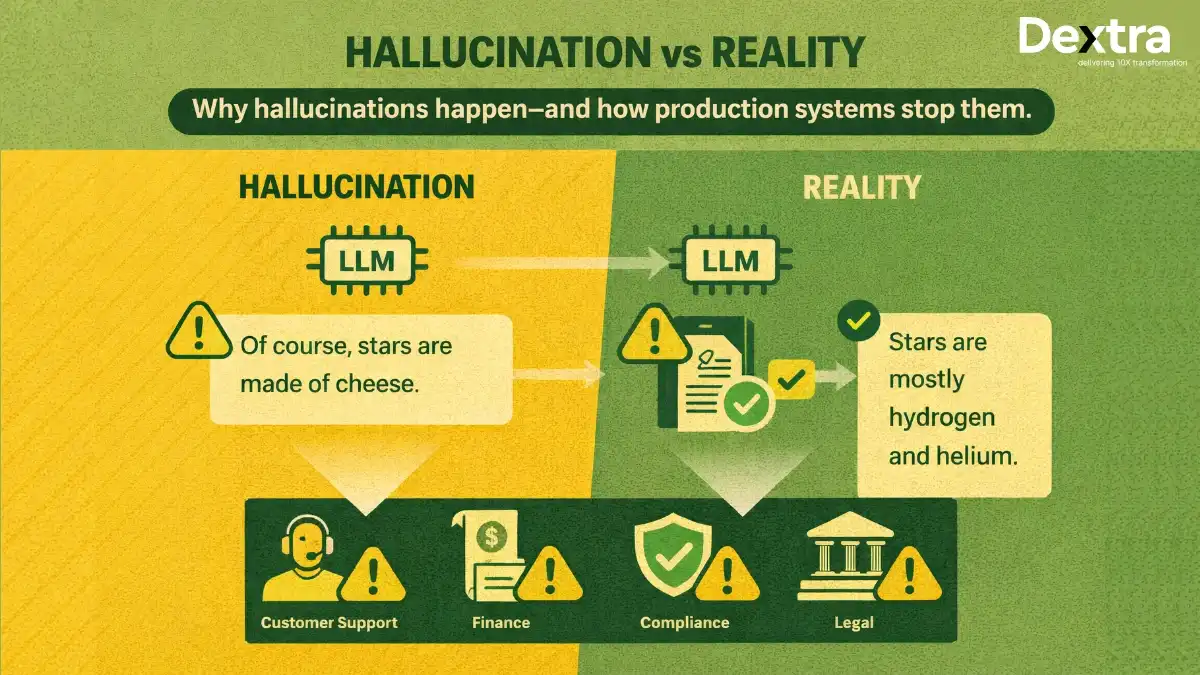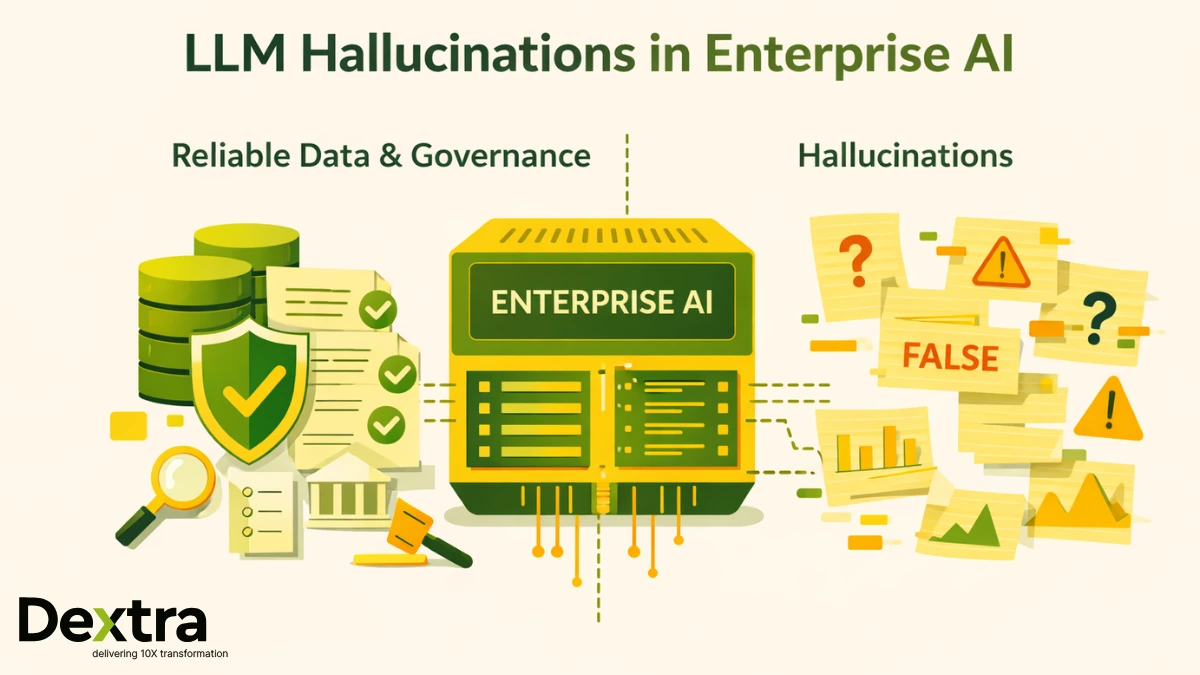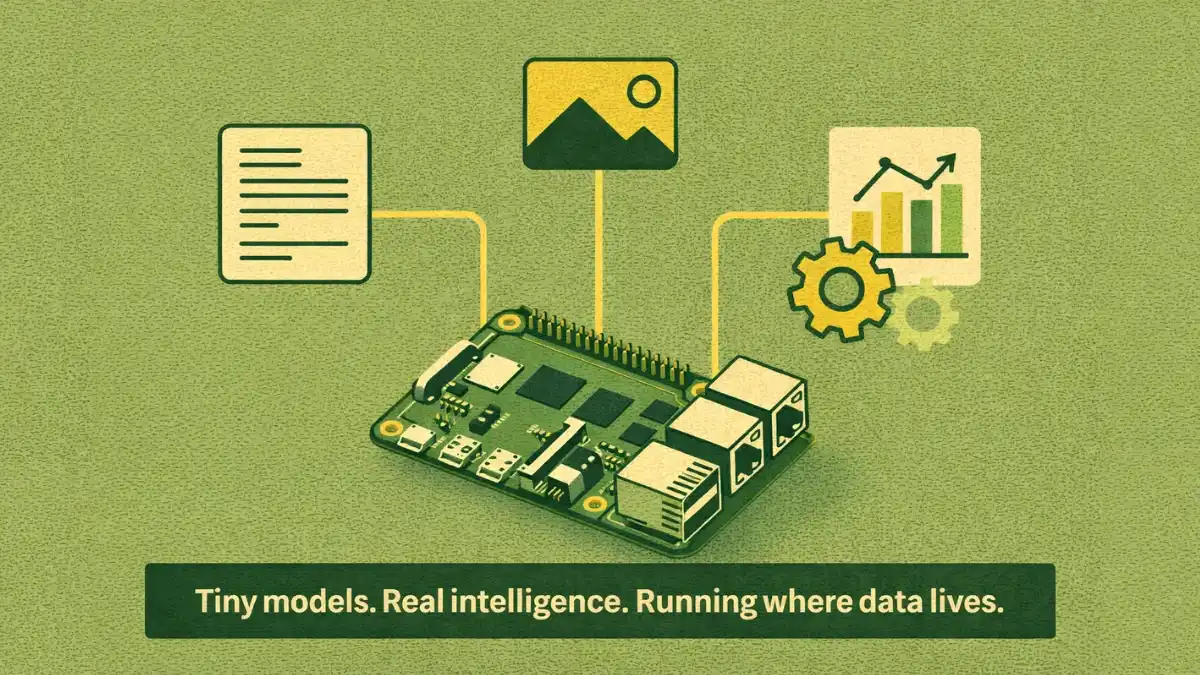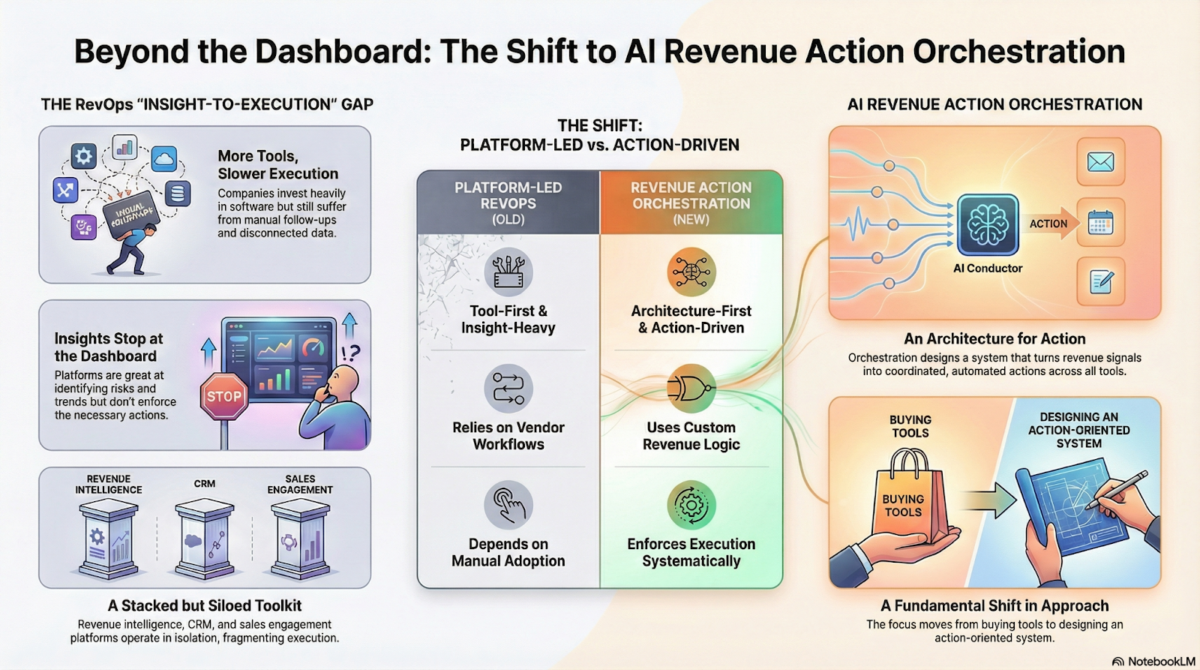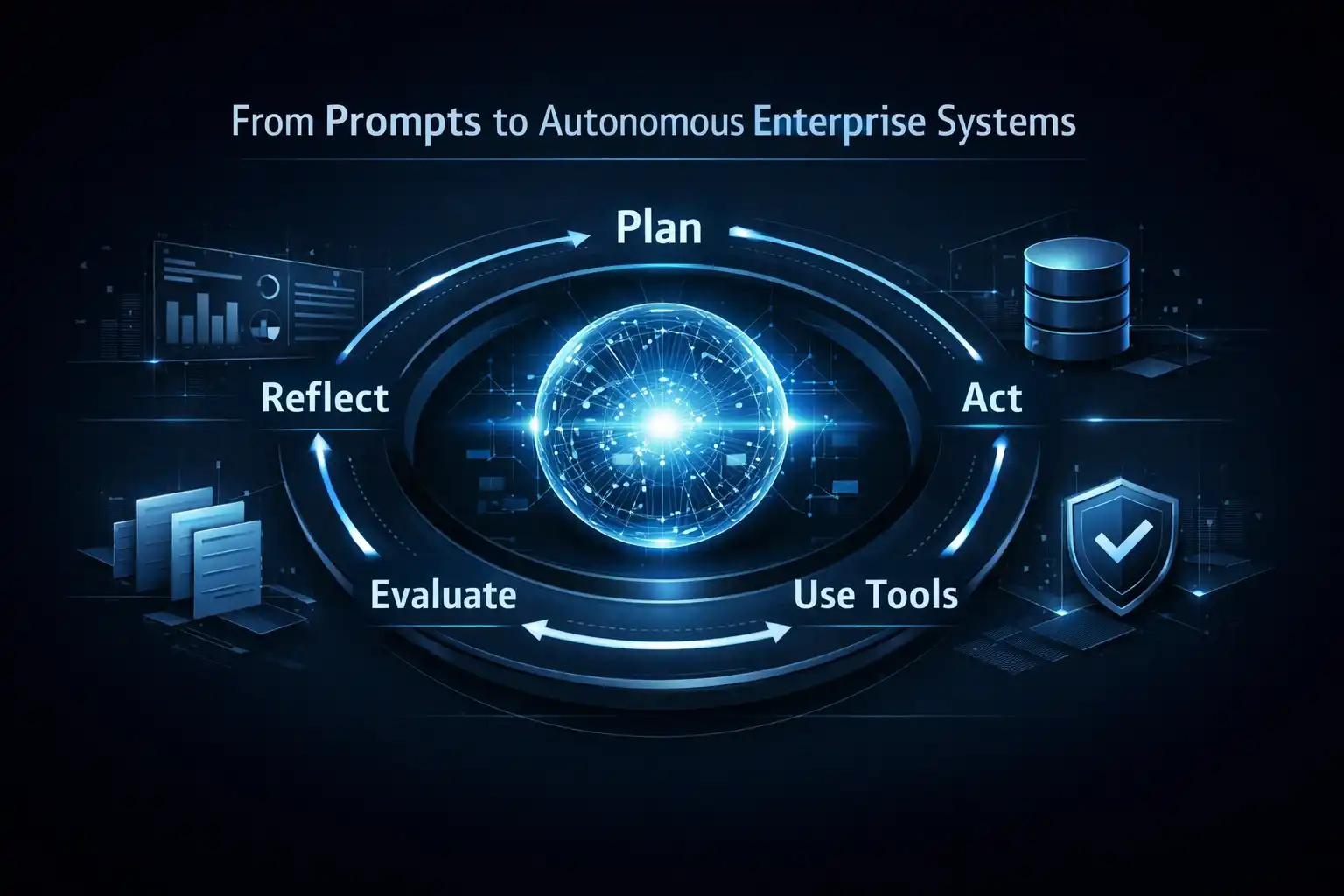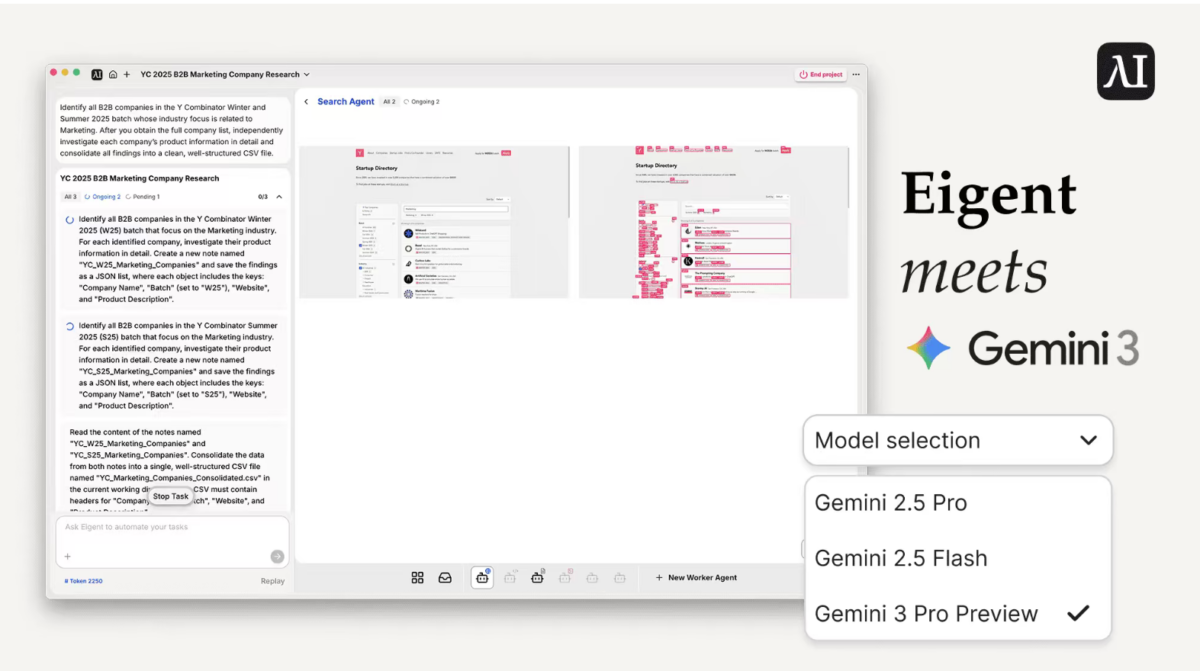Struggling to scale your SaaS business while juggling rising costs and growing customer demands? You’re not alone.
As companies race to improve productivity and revenue, traditional tools are no longer enough. Manual workflows slow down growth, and teams get overwhelmed by repetitive tasks. It’s a challenge that’s stalling innovation and stretching budgets thin.
This is where AI agents step in, offering a smarter, faster, and cost-effective solution. But what exactly are AI agents, and why are they suddenly everywhere?
According to Statista, the global AI market is projected to hit a staggering $1.8 trillion by 2030. A McKinsey report reveals that 90% of business leaders believe AI will boost revenue, while Salesforce data shows that AI agents can increase efficiency by 55% and cut costs by 35%.
In this guide, we’ll break down AI agents in simple terms, what they are, the different types, real-world use cases, and the powerful benefits they bring to SaaS businesses.

What is an AI Agent?
An AI agent is a software program that can work on its own. It understands tasks, makes plans, and takes actions without needing constant human input. These agents are powered by Artificial Intelligence and large language models (LLMs). They can read data, analyze it, and decide what to do next.
What are ai agents not the same as basic chatbots or assistants. Traditional chatbots follow fixed scripts. They can only respond to simple commands. AI agents are much smarter. They can handle complex tasks that involve many steps.
One key difference is autonomy. AI agents can make decisions and act without asking for permission at each step. They also have memories. This means they can remember past interactions and learn from them.
AI agents can also use tools like web browsers, APIs, or databases. This lets them complete real-world tasks like booking meetings, writing reports, or analyzing data. They use multi-step reasoning to figure out the best way to solve a problem. In short, AI agents don’t just talk, they take action.
Ready to Deploy AI Agents in Your Business?
Talk to our AI experts and explore tailored solutions that deliver measurable business impact.
Book Your Free CallTypes of AI Agents:
AI agents differ in how they make decisions and interact with their environment. Below are five main types, each with unique traits and use cases:
1. Simple Reflex Agents
- Respond only to the current situation, without considering past events.
- Follow pre-defined rules to decide what action to take.
Example: A spam filter that blocks emails containing specific words or phrases.
2. Model-Based Reflex Agents
- Use a model of the environment to keep track of what’s happening over time.
- Make decisions based on both current input and stored information.
Example: A smart home system that remembers when you usually turn off the lights and acts accordingly.
3. Goal-Based Agents
- Focus on achieving specific goals rather than just reacting.
- Can evaluate different paths and choose the best one to reach the goal.
Example: A delivery drone that finds the most efficient route to deliver a package.
4. Utility-Based Agents
- Aim for the most beneficial outcome by measuring the “utility” or value of each choice.
- Can handle situations with multiple good outcomes and choose the best.
Example: An AI financial advisor that selects investment options based on risk and return balance.
5. Learning Agents
- Learn from their past actions and outcomes to improve performance.
- Continuously adapt to new data or changing environments.
Example: A streaming service that recommends better movies over time based on what you watch and rate.
How Do AI Agents Work?
AI agents work through a series of interconnected processes that allow them to perceive, reason, plan, act, and learn. Here’s a breakdown:
- Perception: The AI agent collects data from its environment using sensors or input devices. This data could come from a variety of sources like cameras, microphones, or text input.
- Reasoning: The agent processes the perceived data using algorithms to understand the context, make sense of the situation, and predict outcomes. This step may involve decision-making frameworks, knowledge representation, and logic.
- Planning: Based on the reasoning, the AI agent formulates a plan or strategy to achieve its goals. This could involve setting priorities, choosing from multiple options, and mapping out a sequence of actions.
- Action: The agent executes the plan by interacting with the environment or system, carrying out tasks that move it closer to the goal. Actions could range from sending a command to controlling a physical device or generating a response.
- Learning: As the agent performs tasks, it learns from its actions and outcomes, typically using machine learning techniques. This allows the agent to improve over time, adapting to new situations and refining its decision-making process.
Real Examples Of how AI agents work:
If you ask a virtual assistant like Siri or Alexa to play a song, the process might look like this;
- Perception: The voice command is recognized.
- Reasoning: The system understands the command and checks its music library.
- Planning: It selects the appropriate song.
- Action: The song plays on your device.
- Learning: The assistant may recommend similar songs based on your previous preferences.
Agent Orchestration
When multiple AI agents work together to solve complex problems, they collaborate by sharing information and coordinating actions. This orchestration can be applied to scenarios like multi-agent systems in robotics, where each robot may specialize in different tasks but must work together to complete a larger objective.
For example, in a self-driving car system:
- Multiple agents (like navigation, obstacle detection, and speed regulation) collaborate to ensure safe and efficient driving.
- They exchange data and plan their actions based on shared goals, like reaching a destination while avoiding accidents.
AI Agents vs. Traditional AI Assistants
To understand the difference between AI agents and traditional AI assistants, let’s break down the comparison across several dimensions: autonomy, memory, tool use, and real-world application.
| Attribute | AI Agents | Traditional AI Assistants |
| Autonomy | High autonomy; can make decisions and act independently. | Low autonomy; needs user input for actions. |
| Memory | Retains and learns from past experiences. | Limited memory; forgets after each session. |
| Tool Use | Uses and combines various tools autonomously. | Limited to predefined tools and functions. |
| Real-World Application | Works in dynamic, complex environments (e.g., robotics, autonomous vehicles). | Task-specific, often in controlled settings (e.g., voice assistants). |
Real-World Use Cases of AI Agents
1. Business Process Automation
- HR: AI agents automate tasks like recruitment (screening resumes), employee onboarding, and payroll management. They can also handle performance reviews and employee queries autonomously.
- IT: AI agents can monitor systems for security threats, automate IT support (e.g., troubleshooting), and manage updates and patches without human intervention.
- Customer Support: AI agents (e.g., chatbots) can handle customer inquiries, resolve issues, and even provide 24/7 support, reducing the need for human agents.
2. SEO and Content Optimization
- Keyword Research: AI agents can analyze search trends, suggest relevant keywords, and help businesses optimize their content to rank higher in search results.
- Content Updates: AI can identify outdated content and suggest improvements or new topics based on current trends and search algorithms.
- Internal Linking: AI agents can automate the process of adding internal links within a website, improving SEO and user experience by connecting related pages.
3. Data Analysis, Supply Chain, Finance, and Healthcare
- Data Analysis: AI agents can process large volumes of data, uncover insights, and generate reports for businesses in fields like market research or financial analysis.
- Supply Chain: AI agents can optimize inventory management, predict demand, and manage logistics to streamline the supply chain process.
- Finance: AI can automate tasks such as fraud detection, risk management, and investment analysis, providing real-time insights for financial decisions.
- Healthcare: AI agents assist in diagnosing conditions, personalizing treatments, and even analyzing medical data to predict patient outcomes, enhancing healthcare delivery. Accenture projects that by 2026, AI could help the healthcare industry save up to $150 billion annually by minimizing errors and boosting operational efficiency.
Benefits of AI Agents for SaaS Businesses:
AI agents offer significant advantages for SaaS businesses, as it automates routine tasks and enhance operational efficiency. At Dextralabs, we provide best AI Agent Development Services where SaaS companies can scale effectively, adapt to changing demands, and deliver highly personalized customer experiences. Here are the top benefits of using Ai Agents:
- Increased Productivity and Automation: AI agents automate repetitive tasks such as customer support and system maintenance, reducing the workload on human teams and improving overall efficiency. This boosts productivity and helps businesses like Dextralab deliver faster services at a lower cost.
- Scalability and Adaptability: AI agents can easily scale with business growth, handling a larger volume of tasks and customers without additional human resources. They are adaptable to new challenges and can quickly adjust to meet evolving customer needs or market conditions, allowing companies like Dextralab to expand seamlessly.
- Personalized Customer Experiences: AI agents analyze individual customer data to provide tailored recommendations, content, or support. This personalization enhances user satisfaction, leading to better customer engagement and long-term loyalty, which is especially valuable for SaaS platforms like Dextralab.
- Real-time Data-Driven Insights: AI agents analyze data in real time, offering actionable insights that help SaaS businesses like Dextralab make informed decisions. These insights can improve product offerings, refine marketing strategies, and enhance customer satisfaction by quickly identifying trends and issues.
Challenges and Considerations in AI Agent Implementation
Implementing AI agents brings several challenges that must be addressed to ensure they function efficiently and ethically. Businesses need to consider security, human oversight, and the computational costs associated with these advanced technologies.
| Challenge and Considerations | Description |
| Security and Governance | AI agents handle sensitive data, requiring strong security measures and compliance with privacy regulations. Effective governance is needed to ensure ethical decision-making. |
| Human Oversight and Transparency | AI agents need human oversight to ensure they operate as intended. Transparency in their decision-making processes is essential to prevent biases and maintain accountability. |
| Computational Complexity and Cost | AI models can be computationally intensive, requiring significant resources and infrastructure, which can increase operational costs, especially for smaller businesses. |
Future Trends in AI Agents
1. Advancements in Generative AI and Agentic Frameworks
- Generative AI: AI agents will create personalized content and solutions, enhancing efficiency in content creation and problem-solving.
- Agentic Frameworks: These frameworks will enable agents to perform complex tasks autonomously, such as strategic decision-making and resource management.
2. Multi-Agent Systems and Orchestration
- Multi-Agent Systems: Multiple AI agents will work together to solve complex problems, improving coordination and efficiency (e.g., in autonomous vehicles or smart cities).
- Orchestration: AI agents will be managed to work seamlessly in teams, optimizing operations in environments like healthcare and logistics.
3. Role of AI Agents in Next-Gen SaaS Platforms
- Automated Service Management: AI agents will automate tasks like resource provisioning, system health monitoring, and customer support, reducing operational costs.
- Personalization at Scale: AI agents will tailor user experiences in real time, enhancing customer engagement and satisfaction.
- Predictive Analytics and Automation: AI agents will predict user needs and automate responses, ensuring proactive service delivery and better customer experiences
Final Thoughts
As a researcher, I believe that you get to know what are ai agents. In this guide we explained how it hold transformative potential across industries, automating tasks, enhancing personalization, and enabling real-time data-driven insights. They are set to revolutionize how businesses operate, driving efficiency, innovation, and better decision-making.
At Dextralabs, as a top ai agent development company, we built custom AI agents to deliver smarter SaaS solutions by automating routine processes, personalizing customer experiences, and providing actionable insights. By integrating advanced AI capabilities into your platform, you can enable businesses to scale effortlessly, improve operational efficiency, and create more impactful user experiences, ensuring long-term growth and success.
Turn AI Hype into Business Reality
Get a personalized AI roadmap for your SaaS product—powered by Dextralabs’ proven AI agent expertise.
Book Your Free CallFAQs on Ai Agents:
Q. What is an AI agent in simple words?
An AI agent is a smart software program that can make decisions, solve problems, and perform tasks without human help.
Q. How do AI agents help SaaS companies?
AI agents help SaaS companies by automating routine work, improving customer service, cutting costs, and boosting team productivity.
Q. What are the types of AI agents used in SaaS?
The main types of AI agents used in SaaS are reactive agents, learning agents, goal-based agents, and utility-based agents.
Q. Can AI agents really reduce business costs?
Yes, AI agents can reduce costs by up to 35% by automating tasks and reducing the need for manual work.
Q. Are AI agents safe to use for SaaS platforms?
Yes, when built and monitored properly, AI agents are safe and can be customized with strong data protection measures.
Q. What are the real-world examples of AI agents in SaaS?
Real-world examples include AI chatbots for support, sales automation tools, personalized recommendation engines, and AI-driven analytics tools.


